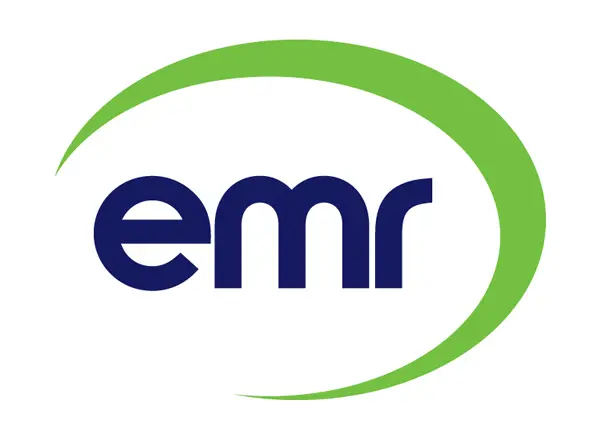The ‘urban mine’ can help transform the UK economy and support businesses of all kinds to meet their carbon reduction targets, explains Roger Morton, Managing for Technology and Innovation at EMR Metal Recycling in a recent article at EMR.
Urban mining is a philosophy that sees the material we recycle not as waste but as a valuable resource that can help us save the planet and keep valuable materials right here in the UK.
At EMR we ‘mine’ the metals and plastics we recycle. These arrive from a huge range of sources that would otherwise be disposed as waste, including end-of-life vehicles, redundant buildings, industrial, commercial and domestic waste and even ships and oil rigs. Our work avoids the need to use virgin material taken out of the ground. And, the best news is, this can be more efficient and much less carbon-intensive than conventional mining.
One great example of a material we can ‘mine’ in this way is copper. I started my career working at a large open-cast copper mine in Southern Africa. We were mining copper deposits containing just 0.5 percent copper. This copper was as copper sulphate and we had to sift enormous amounts of ‘overburden’ – the term for the 99.5 percent of rock that isn’t copper sulphate. Processing then smelting the remaining material, generated large quantities of sulphuric acid.
That mine is now exhausted and the open pit operations have closed.
Thanks to urban mining, EMR makes use of a resource that arrives at our door containing substantially more copper than in that copper mine, without the production of sulphuric acid.
In the long term, it will be even more important to re-use metals like copper, nickel, cobalt and others, as the mineable metals available will continue to run out over the next century. The Copper Alliance says current proven reserves of copper will run out in 46 years at our current rate of usage. The World 7 model, meanwhile, predicts global supplies of nickel will essentially run out by 2130.
We are planning for that future now.
Our economy has already started to respond. According to Fraunhofer ISI, in 2015, around half of the 3.7million tonnes of copper used by the EU came from recycled sources.
With the help of urban mining activities like those spearheaded by EMR, we will continue to increase this rate – not just for copper, but for other high-value metals such as titanium, nickel and cobalt as well as steel and aluminium.
In many ways, urban mining is what recycling companies have always done. What has changed over the past 15 years is that technology has advanced incredibly fast. This has been driven by technical innovations in metal recycling but also in plastic recycling. Techniques such as near-infrared and X-Ray spectroscopy have transformed the yields we’re able to extract from waste.
And we’re utilising technological advances from across the economy. At EMR we have been following the engineering innovations in the mining and coal processing industries, as well as in food processing. The tech that helps farmers separate carrots or grains can be used in our sector to improve our urban mining efforts.
Still, the UK faces major challenges if we are to remain a leader in urban mining. To return to the example of copper, it can be tempting for suppliers to use virgin copper by default because it is all in one place – in the copper mine – while the copper we extract is spread across the waste materials that we process. Also, the mines process huge amounts of copper – worldwide more than 400,000 tonnes each week, according to Statista – so they have the economies of scale.
One of the benefits of EMR is that we operate on a large scale too. We have over 60 sites across the UK and operations in USA, Germany and the Netherlands, all collecting material. Our size means we can consolidate our processes and make the investments needed to compete. We are developing sophisticated methods to capture the tiniest quantities of rare-earth metals and other strategic materials from the waste stream, which we can send straight to a smelter to be turned into useful products once more.
This is a much shorter recovery route with a much better carbon impact. At EMR we are passionate about reducing our carbon footprint with ambitious goals to cut our emissions in the next decade – part of Our Decade of Action strategy – and a target to become net-zero by 2040. Embracing the urban mine means we can also help those up and down the supply chain to reduce their environmental impacts.
So, what’s next? If the UK is going to fully utilise all of the high-value material in our waste, then all parts of the supply chain need to be on board, with industries including technology firms and manufacturers designing their products so recycling companies, like EMR, can increase our yields and ensure more of the materials we throw away can contribute to the next generation of products.
There are lots of interesting initiatives happening in this area in the UK and across Europe and for all product types. An example is CEFLEX, a major collaboration between all the parts of the supply chain on flexible packaging. Most flexible packaging (including crisp packets and cereal bags) is made of six or seven layers of plastic. The CEFLEX initiative involves collaboration between brands, packaging converters, product designers, retailers, waste companies and recyclers to simplify flexible packaging design to make it more recyclable.
We need to follow the same approach in industries like automotive, electrical equipment and construction to minimise the range of material we use and to make it easier to separate and dismantle. One way in which EMR is already leading in this effort is with RECOVAS, a new government-funded partnership with other recyclers and some of the world’s biggest car manufacturers – including BMW, Bentley Motors and Jaguar Land Rover and Warwick University – to create an end-of-life supply chain for electric vehicle batteries. It is already clear that electric cars will be one of the most important technologies as the UK moves towards net-zero by 2050. By capturing, or even reusing, the valuable components of these vehicles, partnerships like RECOVAS will take these efforts to make our lives more sustainable to the next level.
If we get this right, the concept of the urban mine is going to change the world for the better. At EMR we’re proud to be at the heart of this transformation.
Visit www.uk.emrgroup.com
Source www.uk.emrgroup.com







